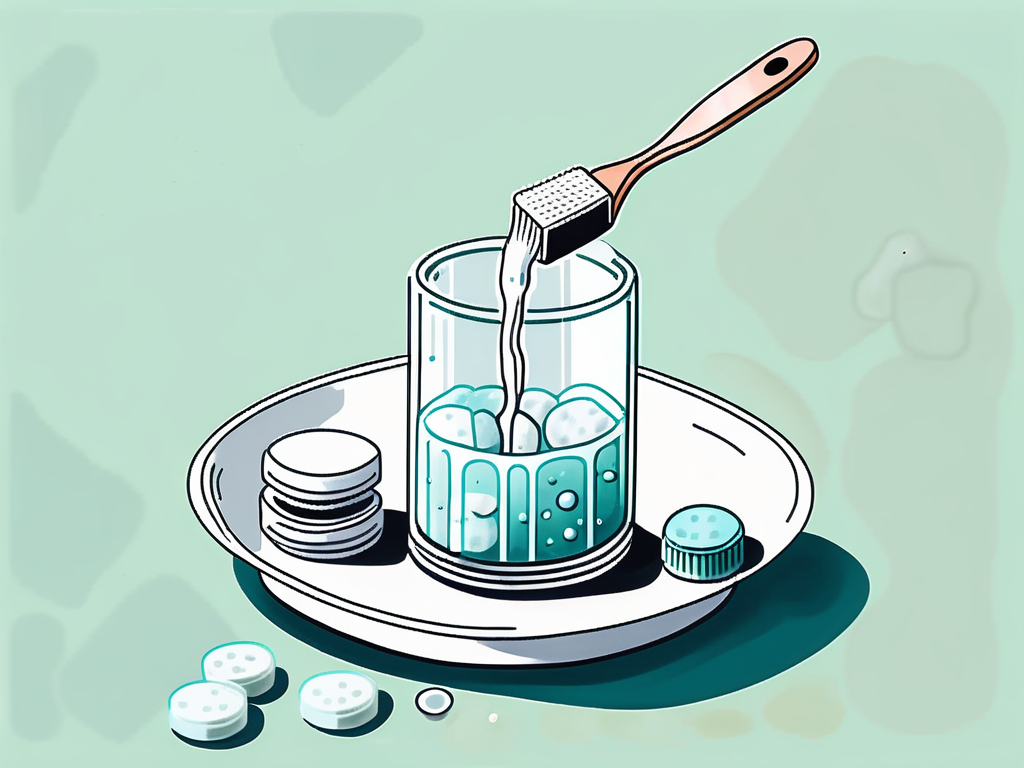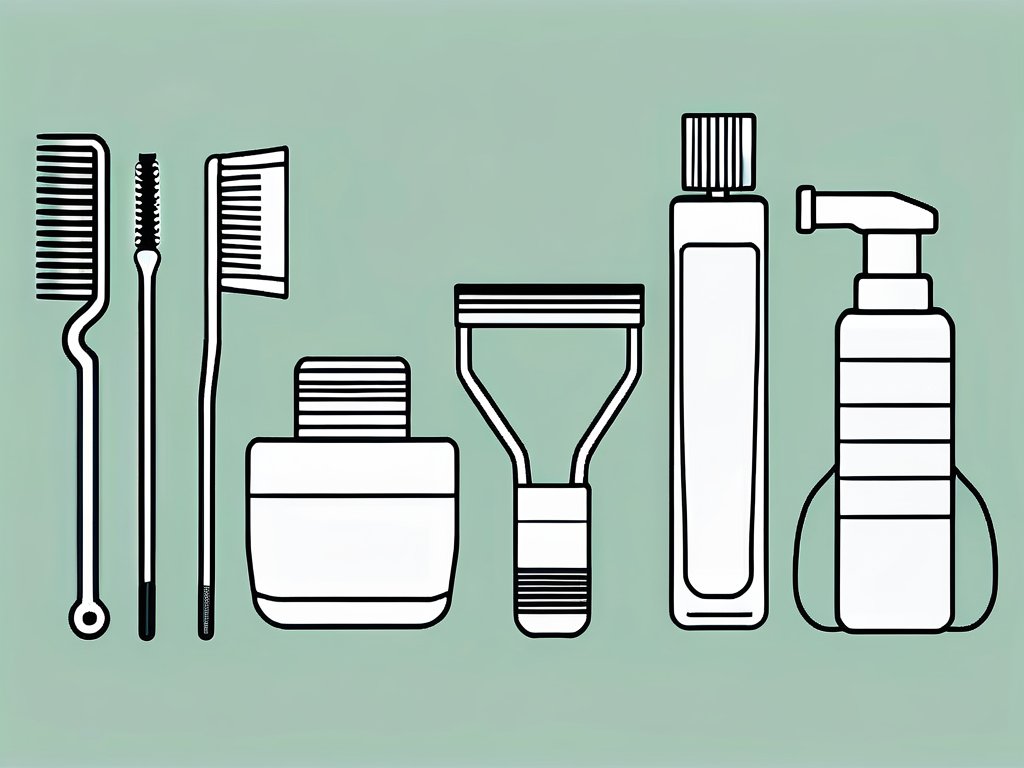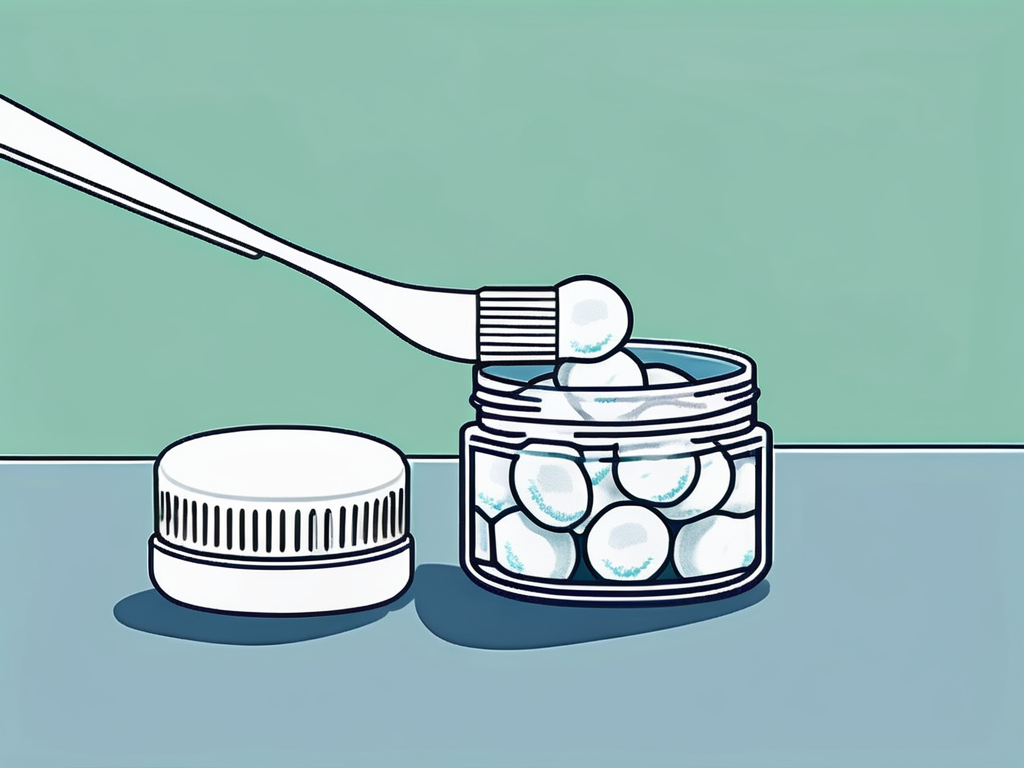Retainers play a crucial role in maintaining and preserving the alignment of our teeth after orthodontic treatment. They are custom-made devices that ensure teeth stay in their corrected positions. However, like any other dental appliance, retainers require regular cleaning and maintenance for optimal effectiveness. In this article, we will explore the importance of cleaning retainers, risks of poorly maintained retainers, types of retainers and their cleaning needs, a step-by-step guide to deep cleaning retainers, tips for daily retainer maintenance, and what to avoid when cleaning retainers.
Understanding the Importance of Cleaning Retainers
Regular cleaning of retainers is essential to maintain proper oral hygiene and prevent bacterial growth. By cleaning your retainers regularly, you can prevent plaque and tartar buildup, which can lead to dental issues such as cavities and gum disease.

Why Regular Cleaning is Essential
Proper oral hygiene is not limited to just brushing and flossing your teeth; it extends to your dental appliances as well. Retainers, when not cleaned regularly, can accumulate harmful bacteria and food particles. These accumulations can cause bad breath and increase the risk of tooth decay and gum disease.
Risks of Poorly Maintained Retainers
Failing to clean your retainers on a regular basis can result in a variety of problems. Bacteria and food particles trapped on the surface of the retainers can lead to a foul odor, making wearing them unpleasant. Additionally, poor maintenance can cause discoloration and deterioration of the retainers, compromising their effectiveness and longevity.
It's important to note that the material of your retainer can also play a role in its maintenance. For example, clear plastic retainers are more prone to staining and require gentle cleaning to avoid discoloration. On the other hand, metal retainers may need special attention to prevent corrosion and ensure their durability over time.
Best Practices for Retainer Cleaning
To ensure the longevity and effectiveness of your retainers, it is recommended to clean them daily with a soft toothbrush and mild soap. Avoid using toothpaste as it can be abrasive and damage the retainer material. Additionally, soaking your retainers in a denture cleaner or a mixture of water and vinegar can help eliminate bacteria and odor.
Types of Retainers and Their Cleaning Needs
When it comes to retainers, there are various types, each with its own specific cleaning requirements. Understanding the cleaning needs of your particular retainer is crucial for maintaining its cleanliness and functionality, ensuring that it serves its purpose effectively.

Hawley Retainers
Hawley retainers are composed of a metal wire with acrylic material that rests either on the roof of your mouth or along the lower gumline. To keep a Hawley retainer clean, you can employ a soft toothbrush with mild soap or non-abrasive toothpaste to gently brush away plaque and debris. For an extra level of cleanliness, you may also choose to soak the retainer in a denture cleaning tablet solution, which will help eliminate any lingering bacteria or odors.
It is worth noting that Hawley retainers can be quite durable, but they do require regular maintenance to ensure their longevity. By adopting a consistent cleaning routine, you can keep your Hawley retainer in optimal condition, allowing it to continue providing the necessary support to maintain the alignment of your teeth.
Essix Retainers
Essix retainers, also known as clear aligner retainers, are crafted from transparent plastic material that fits snugly over the teeth. Cleaning an Essix retainer is relatively straightforward. After removing it from your mouth, simply rinse it with lukewarm water to remove any loose debris or saliva. For an added layer of cleanliness, consider using a non-alcoholic, anti-bacterial mouthwash to eliminate bacteria. If you desire a more thorough clean, soaking the retainer in a mixture of water and a denture cleaning tablet can effectively remove any stubborn stains or odors.
One advantage of Essix retainers is their discreet appearance, making them a popular choice among individuals who prefer a more inconspicuous retainer option. However, it is important to remember that proper cleaning and maintenance are essential to prevent discoloration and ensure the longevity of the retainer.
Permanent Retainers
Permanent retainers, also referred to as bonded retainers, consist of thin wires that are bonded to the back of the teeth. These retainers provide a continuous level of support and are particularly beneficial for individuals who may be prone to teeth shifting. However, due to their fixed nature, cleaning permanent retainers requires a slightly different approach.
To effectively clean a permanent retainer, it is recommended to use an interdental brush or floss threader to remove any food particles that may become trapped between the wires. Regular brushing with a fluoride toothpaste and rinsing with an antimicrobial mouthwash are also highly encouraged to maintain optimal oral hygiene. By incorporating these cleaning practices into your daily routine, you can prevent plaque buildup and keep your teeth and gums healthy.
It is important to note that while permanent retainers offer convenience and long-term stability, they do require regular professional check-ups to ensure that they remain securely in place and continue to fulfill their purpose effectively.
Step-by-Step Guide to Deep Cleaning Retainers
Deep cleaning of retainers should be done occasionally to remove any stubborn plaque and tartar buildup. Follow these steps for a thorough cleaning:
Retainers are essential orthodontic devices that help maintain the alignment of your teeth after braces are removed. Proper care and cleaning of retainers are crucial to ensure their effectiveness and prevent bacterial growth.
Gathering the Necessary Supplies
Before starting the deep cleaning process, gather the following supplies:
- A soft toothbrush
- Mild soap or non-abrasive toothpaste
- Denture cleaning tablets
- A cup or bowl
- Lukewarm water
- A designated retainer case for storage
Preparing the Cleaning Solution
Fill the cup or bowl with lukewarm water and dissolve a denture cleaning tablet according to the manufacturer's instructions. Alternatively, you can use a mixture of warm water and mild soap or non-abrasive toothpaste. This solution helps to break down stubborn plaque and eliminate bacteria that may have accumulated on the retainer.
The Cleaning Process
Remove the retainer from your mouth and rinse it with lukewarm water to eliminate any loose debris. It's important to handle the retainer gently to avoid bending or damaging it. Then, dip the soft toothbrush into the cleaning solution and gently brush the surface of the retainer, paying attention to all the nooks and crevices where bacteria can hide. Regular cleaning of retainers not only maintains their appearance but also ensures your oral health.
After brushing, rinse the retainer thoroughly with lukewarm water to remove any soap or cleaning solution residue. Inspect the retainer to make sure all residue has been removed before allowing it to dry completely. Once dry, store the retainer in a designated case to protect it from dust and bacteria when not in use.
Tips for Daily Retainer Maintenance
Regular daily maintenance is vital to keep your retainers clean and odor-free. Follow these tips to effectively maintain your retainers:

Retainers are an essential part of post-orthodontic care, helping to maintain the alignment of your teeth after braces are removed. It's crucial to take good care of your retainers to ensure they remain effective and comfortable to wear. In addition to daily cleaning and safe storage practices, there are a few extra tips you can follow to prolong the lifespan of your retainers.
Cleaning After Each Use
After removing the retainer from your mouth, rinse it with lukewarm water to remove any saliva and debris. Gently brush the retainer using a soft toothbrush and mild soap or non-abrasive toothpaste. This daily cleaning routine will help prevent the buildup of bacteria and keep your retainer fresh and clean.
It's also recommended to soak your retainer in a denture cleaning solution once a week to ensure a deep clean. This can help remove any stubborn plaque or tartar buildup that may not be removed through regular brushing alone. Remember to rinse the retainer thoroughly after soaking to avoid ingesting any cleaning solution residue.
Safe Storage Practices
When not wearing the retainer, ensure proper storage. Keep the retainer in its designated case to protect it from physical damage and exposure to bacteria. Avoid storing the retainer in a closed container or wrapping it in a tissue, as this can create a moist environment ideal for bacterial growth.
Consider investing in a retainer case that has ventilation holes to allow airflow, reducing the risk of bacterial proliferation. Additionally, storing your retainer away from direct sunlight and heat sources can help prevent warping or damage to the retainer material over time.
What to Avoid When Cleaning Retainers
While cleaning your retainers, be cautious of the following actions to prevent damage or compromising their effectiveness:
Harmful Cleaning Agents
Avoid using abrasive toothpaste, bleach, or any harsh cleaning agents that can scratch or damage the surface of the retainers. These agents can diminish the transparency of clear retainers and reduce the lifespan of all types of retainers.
Avoiding Physical Damage
Handle your retainers with care to prevent bending or breaking them. Avoid exposing them to extreme temperatures or placing them in areas accessible to pets or young children. Furthermore, refrain from using hot water or strong cleaning solutions that can warp or discolor the retainers.
By following these guidelines for deep cleaning and daily maintenance, you can ensure your retainers remain clean, fresh, and effective in maintaining your beautiful smile. Prioritizing retainer care will contribute to your overall oral health and preserve the results of your orthodontic treatment. Remember, a clean retainer leads to a healthier smile!
Now that you understand the importance of keeping your retainers clean for a healthier smile, consider extending that care to your entire night-time dental routine with Remi's custom mouth guards. Perfect for those who clench or grind their teeth, Remi's mouth guards are crafted in the USA from dental-grade, BPA-free plastic and are up to 80% cheaper than traditional options. Join The Remi Club for regular deliveries and savings, or try a single set with the confidence of a 30-day return policy. Experience the perfect fit and quality that our customers love. Ready to protect your smile and save money? Shop Now and discover the convenience and comfort of Remi's custom solutions.













